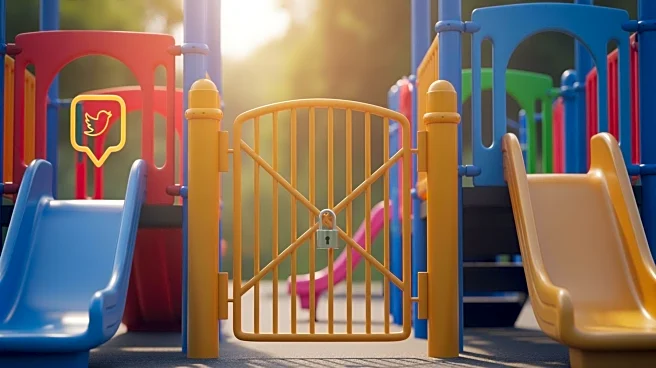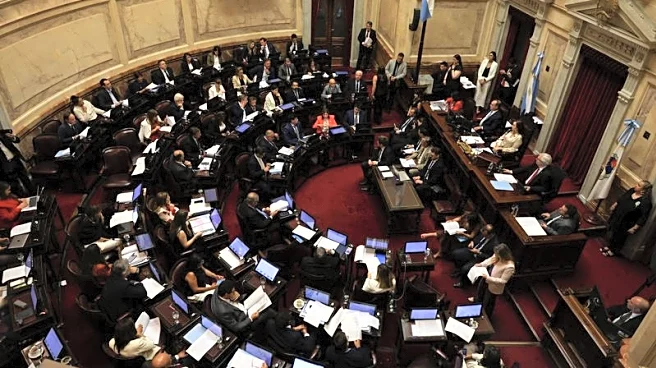What's Happening?
Australia is set to implement a ban on social media access for children under 16, effective December 10. The legislation imposes fines on social media companies, such as Facebook, Instagram, and TikTok,
if they fail to prevent underage users from creating accounts. The ban aims to address mental health concerns linked to excessive social media use among adolescents. However, the enforcement of this ban poses significant challenges, as companies are prohibited from requiring government-issued IDs for age verification. A trial of age-detection technology revealed high false rejection rates, indicating potential difficulties in accurately identifying underage users.
Why It's Important?
The ban reflects growing global concerns about the impact of social media on youth mental health, with studies indicating a correlation between high social media usage and increased anxiety and depression among adolescents. The legislation highlights the tension between protecting young users and the operational challenges faced by social media companies. The outcome of this initiative could influence similar policies in other countries, as governments seek to balance technological innovation with public health and safety.
What's Next?
Social media companies will need to develop alternative age verification methods to comply with the new regulations. The effectiveness of these measures will be closely monitored, and the Australian government's approach may serve as a model for other nations considering similar restrictions. Ongoing debates about the role of social media in society and its regulation are likely to intensify, with potential implications for industry practices and legislative frameworks worldwide.










